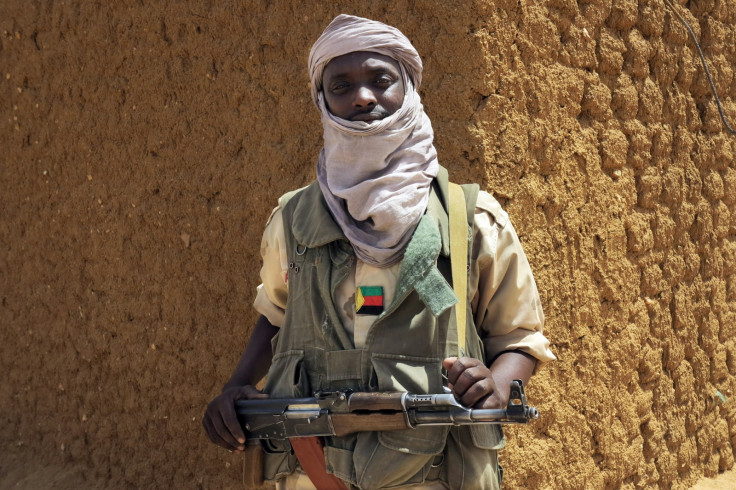Mali Tuareg insurgence: Rebels agree to talks with government as France considers sanctions

Tuareg rebels in northern Mali have agreed to another round of peace talks with the government weeks after deadly attacks killed civilians and UN peacekeepers.
Tuareg's war for independence
The Tuareg's second rebellion in Mali – the first of which occurred in the 1960s – began in 2012, when Tuareg soldiers returned to northern Mali after fighting in the Libyan Civil War.
Once they returned to Mali, they formed the National Movement for the Liberation of Azawad (MNLA), which waged a war against the Malian government to win independence for the northern region of Azawad.
The revolts resulted in the ousting of then-president Amadou Toumani Touré and the suspension of the constitution of Mali.
Following the coup, the MNLA took control of three cities in the northern part of the country and proclaimed Azawad's independence from Mali.
Tuareg nationalists and Islamists struggled to reconcile their conflicting views for the new state and, after several clashes, the MNLA renounced their claim of independence for Azawad and engaged with the Malian government in negotiations on its future status.
Although MNLA, Islamists and the Malian government have reached a peace agreement, some factions are yet to sign it.
The rebels rejected a preliminary UN-brokered peace deal, already signed by the government, arguing it does not accommodate any of their requests, including their demand of independence of the northern region on Azawad.
"We agreed that there should be another meeting with the mediators and Mali government," Moussa Ag Acharatoumane, a spokesman for the National Movement for the Liberation of Azawad (MNLA), told Reuters. He said the date and place of the meeting was yet to be decided.
Referring to the current peace deal, Acharatoumane said: "It will be difficult [to sign] for all of the reasons we have already explained."
A diplomat representing France - which deployed troops to Mali in 2013 to help the local army combat the insurgents - said sanctions such as travel bans might be considered against rebels if they do not sign.
Mark Saade, the honorary consul of Mali in London, told IBTimes UK he believes the Malian government, with the aid of neighbouring countries, has been working tirelessly to engage in negotiations with the rebels and achieve peace.
However, referring to the fact Nigerian terror group Boko Haram recently pledged allegiance to Islamic State (Isis) terrorists, he warned the support of neighbouring countries and the international community was still necessary to avoid local terrorism becoming a global threat.
© Copyright IBTimes 2025. All rights reserved.






















